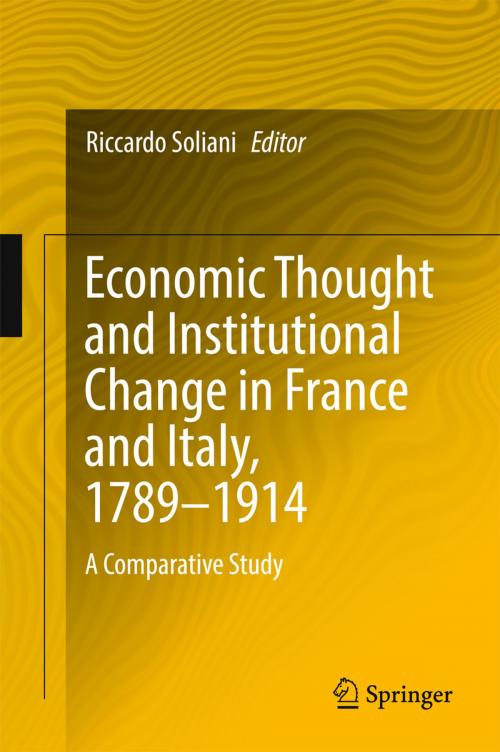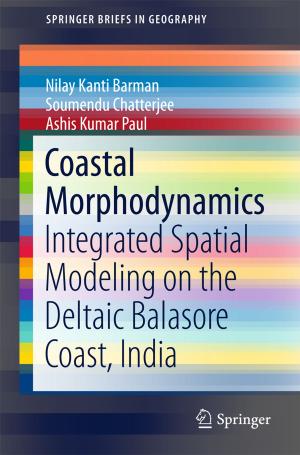Economic Thought and Institutional Change in France and Italy, 1789–1914
A Comparative Study
Nonfiction, Social & Cultural Studies, Political Science, Politics, Economic Conditions, Business & Finance, Economics| Author: | ISBN: | 9783319253541 | |
| Publisher: | Springer International Publishing | Publication: | November 15, 2016 |
| Imprint: | Springer | Language: | English |
| Author: | |
| ISBN: | 9783319253541 |
| Publisher: | Springer International Publishing |
| Publication: | November 15, 2016 |
| Imprint: | Springer |
| Language: | English |
This book explores the relationship between economic thought, proposals for reform of political institutions, and civil society in the period between the rise to power of Napoleon and the eve of the First World War in Italy and France – two countries with a similar cultural and political tradition and with personal mobility of the intellectual class. The first section of the book is devoted to the struggle for identity, justice, and liberty, including its economic dimensions. The relation between political and economic freedom and its effect on equity is then addressed in detail, and the third, concluding section focuses on the intellectual and political conflict between the social visions of liberalism and socialism in some of their various forms, again with consideration of the economic implications. The comparative nature of the analysis, combined with its interdisciplinary approach to the history of economic and political thought and social history, will enable the reader to understand more clearly the historical evolution of each country and the relevant contemporary political and economic issues.
This book explores the relationship between economic thought, proposals for reform of political institutions, and civil society in the period between the rise to power of Napoleon and the eve of the First World War in Italy and France – two countries with a similar cultural and political tradition and with personal mobility of the intellectual class. The first section of the book is devoted to the struggle for identity, justice, and liberty, including its economic dimensions. The relation between political and economic freedom and its effect on equity is then addressed in detail, and the third, concluding section focuses on the intellectual and political conflict between the social visions of liberalism and socialism in some of their various forms, again with consideration of the economic implications. The comparative nature of the analysis, combined with its interdisciplinary approach to the history of economic and political thought and social history, will enable the reader to understand more clearly the historical evolution of each country and the relevant contemporary political and economic issues.















